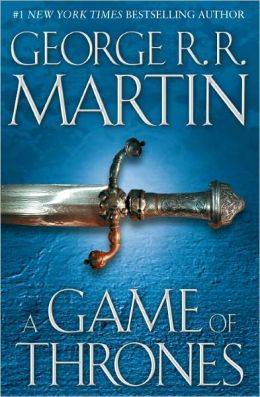Lieutenant General William G. Boykin (retired) was the United States Deputy Undersecretary of Defense for Intelligence. He has played a role in almost every recent major American military operation, serving in Grenada, Somalia, and Iraq. He is currently an author and teaches at Hampden-Sydney College, Virginia.
William G. "Jerry" Boykin was born in New Bern, North Carolina. He graduated from Virginia Polytechnic Institute and State University (Virginia Tech) with a bachelor’s degree in English in 1971.
William G. "Jerry" Boykin was born in New Bern, North Carolina. He graduated from Virginia Polytechnic Institute and State University (Virginia Tech) with a bachelor’s degree in English in 1971.
In 1971 Boykin was commissioned as a 2nd Lieutenant in the Infantry. He also had positions within the2nd Armored Division, 101st Airborne Division, and also served as a company commander in the 24th Infantry Division (Mechanized).
From 1978-1993 Boykin was assigned in various capacities to Delta Force. Lt. Col. L.H. "Bucky" Burruss, helping with Delta Force selection at the time, recalled that Boykin "had a bad knee and I thought he would never make it.... I thought, I hate to see this guy busting his [butt], I don't see how he can make it on this bad road wheel, but he surprised us." In fact, a Fort Bragg psychologist almost ended Boykin's career, wanting to exclude him from the Delta Force because he was "too religious". However, he was finally accepted into the Delta Force at the age of 29. Burruss wrote at the time that "Jerry Boykin is a Christian gentleman of the highest order." Boykin believed God had a hand in things: "God led me into the Delta Force.... And He said to me, 'This is where you ought to be.'"
By 1980 he was the Delta Force operations officer on the April 24–25 Iranian hostage rescue attempt. Boykin called it "the greatest disappointment of my professional career because we didn't bring home 53 Americans." Despite this, his "faith was stengthened" believing he had witnessed "a miracle": "Not one man who stood with us in the desert and pleaded for God to go with us was killed or even injured that night."
In October 1983, Maj. Boykin worked as an operations officer during Operation Urgent Fury in Grenada. During a dawn assault to free some Grenada government officials held by the Marxist People's Revolutionary Army, Boykin was shot in the arm with a.50 caliber round, splitting the bone completely in two. He was told he would never use it again, but his arm healed, which Boykin again believed God was responsible for.
In 1989, Boykin was in Panama as part of the mission to apprehend Manuel Noriega.
From 1990 to 1991 he was at the Army War College. In 1992/early 1993, as a colonel, Boykin was in Colombia leading a mission to hunt for drug lord Pablo Escobar. Seymour Hersh later claimed in The New Yorker that there were suspicions within the Pentagon that Boykin's team was going to take part in the assassination of Pablo Escobar, and that US Embassy officials in Colombia were acting as support. Hersh refers to Mark Bowden's book Killing Pablo which made allegations that the Pentagon believed Boykin intended to break the law and exceed his authority in the operation. Mark Bowden states that “within the special ops community... Pablo's death was regarded as a successful mission for Delta, and legend has it that its operators were in on the kill.” Hersh also quotes an anonymous retired army general as saying, “That's what those guys did. I've seen pictures of Escobar's body that you don’t get from a long-range telescope lens. They were taken by guys on the assault team.”
In April 1993, he helped advise Attorney General Janet Reno regarding the stand-off at Waco, Texas between the Federal Government and a religious sect.
In October 1993, Colonel Boykin was in command of the Delta Force tracking down militia leader Mohamed Farrah Aidid in Somalia, during which time the infamous Battle of Mogadishu took place. Boykin recalled seeing a truck pull up to the US base near Mogadishu airport filled with bodies: "I watched that tailgate open and I watched the blood of my soldiers pour out of that truck like water." Shortly after, Boykin was wounded in a mortar attack on the compound. The Hollywood movie "Black Hawk Down," which depicts the Battle of Mogadishu, omits Boykin's role as mission commander.
Some time afterwards, he served at the Central Intelligence Agency as Deputy Director of Special Activities, and was promoted to the rank of Brigadier General. He was later made Deputy Director for Operations, Readiness, and Mobilization when assigned to the Army Staff.[2]
From April 1998 to February 2000, he served as the Commanding General, U.S. Army Special Forces Command (Airborne) at Fort Bragg, North Carolina. From March 2000-2003, he was the Commanding General, United States Army John F. Kennedy Special Warfare Center, Fort Bragg, N.C. In June 2003, he was appointed Deputy Undersecretary of Defense for Intelligence under Dr. Stephen Cambone, Undersecretary of Defense for Intelligence.
LTG Boykin retired on August 1, 2007 and currently teaches at Hampden-Sydney College.
LTG Boykin is the author of Never Surrender: A Soldier's Journey to the Crossroads of Faith and Freedom and Danger Close: A Novel
Boykin went to Armed Forces Staff College, Army War College, and Shippensburg University (where he received a Masters Degree). His badges include the Master Parachutist Badge, Military Freefall Badge, Ranger Tab and Special Forces Tab. Medals and awards include: "the Distinguished Service Medal, Defense Superior Service Medal (with 3 Oak Leaf Clusters), Legion of Merit (with Oak Leaf Cluster), Bronze Star, Air Medal and the Purple Heart (with Oak Leaf Cluster)."
















No comments:
Post a Comment